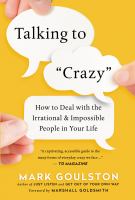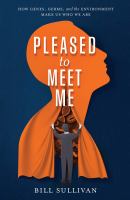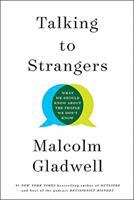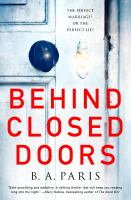Post-holiday blues and cabin fever aside, something is making us all very agitated these days. The general level of anger feels like it has been escalating in recent years, as evidenced by heated social media exchanges and, often, by our daily encounters. It’s a worrisome trend, which can cause us to doubt our every move as we attempt to navigate the murky waters of human interaction.
While most difficult people are only fleetingly troublesome, there are a few types of people who can, knowingly or unknowingly, do us great harm — and they are not always easy to spot. In “5 Types of People Who Can Ruin Your Life,” lawyer and family mediator Bill Eddy helps identify the narcissistic, borderline, sociopathic, paranoid and histrionic among us. These high-conflict personalities can leave others extremely damaged, emotionally and physically. Eddy offers tactics to engage compassionately with these troubled souls, while allowing protection for those who are close to them.
 Even if we never find ourselves in close relationships with high-conflict individuals, psychiatrist Mark Goulston points out that we all sometimes have to deal with irrational people, such as an out-of-control toddler, an aging parent with memory loss or an enraged boss. In “Talking to Crazy” Goulston offers a process to replace our natural, adrenaline-fueled response with a “Sanity Cycle.” The Cycle involves six steps to allow you to “lean into crazy” by recognizing and responding to the person’s elemental needs in a rational way. By demonstrating empathy through listening and calm engagement, you can help an irrational person regain self-control.
Even if we never find ourselves in close relationships with high-conflict individuals, psychiatrist Mark Goulston points out that we all sometimes have to deal with irrational people, such as an out-of-control toddler, an aging parent with memory loss or an enraged boss. In “Talking to Crazy” Goulston offers a process to replace our natural, adrenaline-fueled response with a “Sanity Cycle.” The Cycle involves six steps to allow you to “lean into crazy” by recognizing and responding to the person’s elemental needs in a rational way. By demonstrating empathy through listening and calm engagement, you can help an irrational person regain self-control.
 We have always looked to philosophers and theologians for insight into human behavior, but in “Pleased to Meet Me,” Bill Sullivan, reveals new science showing that we are only beginning to know the deeper origins of self. Why are some of us born introverts and others the life of the party? Why might one sibling be prone to lifelong depression and not the other? Previously, we believed human traits were shaped equally by nature and nurture, but new discoveries in genetics and microbiology seem to skew more toward nature than we ever imagined. Our taste or distaste for certain foods and our overall health is often related to our gut microbes. Our moods, general disposition and even political beliefs can be shaped not so much by knowledge and morality, but by our genetic legacy, including something called epigenetics, in which trauma, famine, disease or exposure to toxins experienced by one individual may be passed along to many generations of descendants through altered DNA.
We have always looked to philosophers and theologians for insight into human behavior, but in “Pleased to Meet Me,” Bill Sullivan, reveals new science showing that we are only beginning to know the deeper origins of self. Why are some of us born introverts and others the life of the party? Why might one sibling be prone to lifelong depression and not the other? Previously, we believed human traits were shaped equally by nature and nurture, but new discoveries in genetics and microbiology seem to skew more toward nature than we ever imagined. Our taste or distaste for certain foods and our overall health is often related to our gut microbes. Our moods, general disposition and even political beliefs can be shaped not so much by knowledge and morality, but by our genetic legacy, including something called epigenetics, in which trauma, famine, disease or exposure to toxins experienced by one individual may be passed along to many generations of descendants through altered DNA.
 Increasing globalization means we now frequently encounter people whose thoughts and actions we may unintentionally misinterpret, with tragic consequences. Bestselling author Malcolm Gladwell considers this phenomenon in his latest book, “Talking to Strangers.” Gladwell uses examples from history and recent news stories to demonstrate how we often misread others due to the myopic lens of our societal upbringing. Tendencies such as ‘defaulting to truth’ can cause us to let an inherent trust of others override obvious warning signs, a factor that caused the delayed apprehension of child molesters Jerry Sandusky and Larry Nassar. The belief that others’ words and actions will be easily transparent to us is a fallacy, according to Gladwell. The wrongful murder conviction of Amanda Knox and the unjust arrest of Sandra Bland demonstrated how unusual, but entirely innocent behavior can be misinterpreted as guilt. Although we’ll never be free of our tendencies to misjudge, awareness is the key to becoming more circumspect in dealing with others.
Increasing globalization means we now frequently encounter people whose thoughts and actions we may unintentionally misinterpret, with tragic consequences. Bestselling author Malcolm Gladwell considers this phenomenon in his latest book, “Talking to Strangers.” Gladwell uses examples from history and recent news stories to demonstrate how we often misread others due to the myopic lens of our societal upbringing. Tendencies such as ‘defaulting to truth’ can cause us to let an inherent trust of others override obvious warning signs, a factor that caused the delayed apprehension of child molesters Jerry Sandusky and Larry Nassar. The belief that others’ words and actions will be easily transparent to us is a fallacy, according to Gladwell. The wrongful murder conviction of Amanda Knox and the unjust arrest of Sandra Bland demonstrated how unusual, but entirely innocent behavior can be misinterpreted as guilt. Although we’ll never be free of our tendencies to misjudge, awareness is the key to becoming more circumspect in dealing with others.
 Problematic people have long been the inspiration for great fiction. “The Silent Patient” by Alex Michaelides narrates the puzzling story of a woman who refuses to speak after she is convicted of the gruesome murder of her husband. When the therapist-narrator who is determined to work with her finally persuades her to break her silence, she does so in a way he doesn’t expect, resulting in a plot-twist that will have you shaking your head long after the story ends.
Problematic people have long been the inspiration for great fiction. “The Silent Patient” by Alex Michaelides narrates the puzzling story of a woman who refuses to speak after she is convicted of the gruesome murder of her husband. When the therapist-narrator who is determined to work with her finally persuades her to break her silence, she does so in a way he doesn’t expect, resulting in a plot-twist that will have you shaking your head long after the story ends.
 Another recent thriller, “Behind Closed Doors” by B.A. Paris, features a loathsome antagonist whose victim — his new wife — seems unbelievably hapless … until she finds a way to get her revenge. For many, these kinds of psychological fictions offer the best way to make sense of the difficult personalities around us. Although the characters we meet may be nefarious and their behavior unfathomable, they will always be neatly contained within their fictional worlds.
Another recent thriller, “Behind Closed Doors” by B.A. Paris, features a loathsome antagonist whose victim — his new wife — seems unbelievably hapless … until she finds a way to get her revenge. For many, these kinds of psychological fictions offer the best way to make sense of the difficult personalities around us. Although the characters we meet may be nefarious and their behavior unfathomable, they will always be neatly contained within their fictional worlds.


